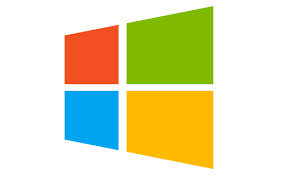G Suite vs. Office 365: Which is the Better Productivity Suite for Your Business?
 IT preferences can feel like religion. Mac vs PC. Linux vs Windows, iOS vs Android. The same holds true with cloud services. The historical presence of MS Office in our daily work lives makes moving to G Suite feel more like a radical shift than moving to Microsoft Office 365. And while there is something to be said for familiarity, the way we’ve always done things is not necessary the best way to do them, or the way we should be doing them in the future.
IT preferences can feel like religion. Mac vs PC. Linux vs Windows, iOS vs Android. The same holds true with cloud services. The historical presence of MS Office in our daily work lives makes moving to G Suite feel more like a radical shift than moving to Microsoft Office 365. And while there is something to be said for familiarity, the way we’ve always done things is not necessary the best way to do them, or the way we should be doing them in the future.
G Suite vs. Office 365
Our work environments are changing from structure and hierarchy to collaboration and teams.
The productivity tools we pick should foster and support the way your team wants to work rather than forcing your team into structures and processes that can stifle innovation, initiative, and productivity.
Both Microsoft Office 365 and G Suite give you the tools to help your team collaborate and thrive. The approaches, however, differ.
The Microsoft Office 365 Angle
For about two years, Microsoft has focused on “cloud first; mobile first” as its strategy and mantra. The evolution of Office 365 and Azure demonstrate Microsoft’s commitment and enthusiasm for the collaboration economy.
But Microsoft is about rapid evolution, not revolution. Microsoft understand that you have legacy systems and data — from MS Office documents to line-of-business systems — that you cannot replace all at once. One of the strengths of Office 365 is the ability to integrate the service with existing servers, applications, and data. In doing so, new capabilities work not only with cloud-based infrastructure systems and data, but with your existing IT systems and services.
Microsoft’s cloud-first strategy is clearly to expand the capability of Office 365, but let you access your on-premise systems and data. Case in point: Power BI. Power BI is a user-driven data analytics tool in Office 365 that is not part of the MS Office suite. Power BI lets you connect and include data from Excel, SQL Server, Dynamics, and hundreds of other sources — on premise and in the cloud.
The Google G Suite Angle
Google has always been cloud-first — some might say cloud-only — in its strategy. Yes, G Suite integrates with your local Windows network and with your desktop MS Office suite. But the real power of G Suite is the innate design around collaboration and peer connectivity. Every app — and nearly every feature — supports real time collaboration. The apps within G Suite are designed to be efficient and “lighter weight” than other productivity suites, focusing on the functionality used by 80-90% of users and relying on third party solutions for the rest.
G Suite assumes, if not expects, you to use third party applications and solutions to build out your capabilities. Google focuses on integration with third parties as much, if not more, than adding major apps and functionality to G Suite. Need a CRM system? Take your pick from dozens of solutions ranging from major players like Salesforce.com and Prosperworks to niche and vertical market solutions like Bullhorn. Need a task management solution? Hive, Smartsheets, and many others are ripe for the picking.
Google’s cloud platform strategy is clearly to provide a core productivity platform and to empower organizations to pick “best fit” and “best of breed” cloud (SaaS) solutions to fill broader needs and provide line of business functionality.
Other Considerations With the Culture Clash of Office 365 vs. G Suite
Even with a Cloud-First strategy, Microsoft focuses on including and providing a broad range of apps and solution within the Windows/Office365/Azure ecosystem. Yes, Microsoft fosters relationships and integrates with other cloud solutions and apps. Microsoft also integrates with legacy, on-premise systems. Google’s culture is more “all in cloud”. Yes, you can integrate MS Office. Yes, you can connect to on-premise systems. But your productivity suite will work best when you integrate with third party SaaS solutions.
Which solution — Office 365 and G Suite — is right for you depends on where you are and where you want to go as an organization. The decision is as much about culture, line of business apps, mobility, and other factors as it is about Outlook vs Gmail. When deciding which cloud, look forward and measure your decision against goals, objectives, and the long term strategy for your business as well as your IT.
For more discussion of factors to consider when deciding which cloud is best for your business, check out our recent eBook, Picking Your Productivity Cloud.


